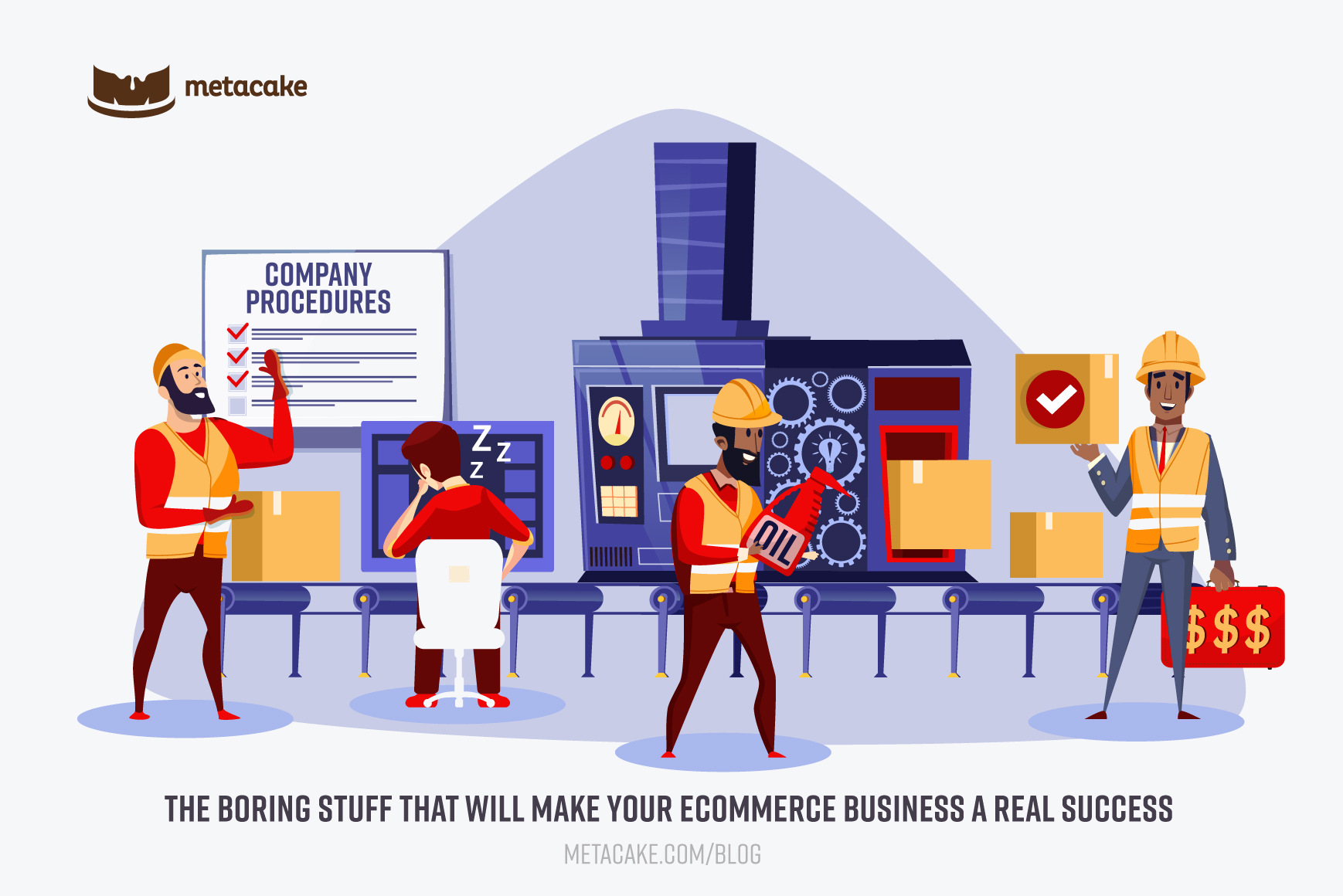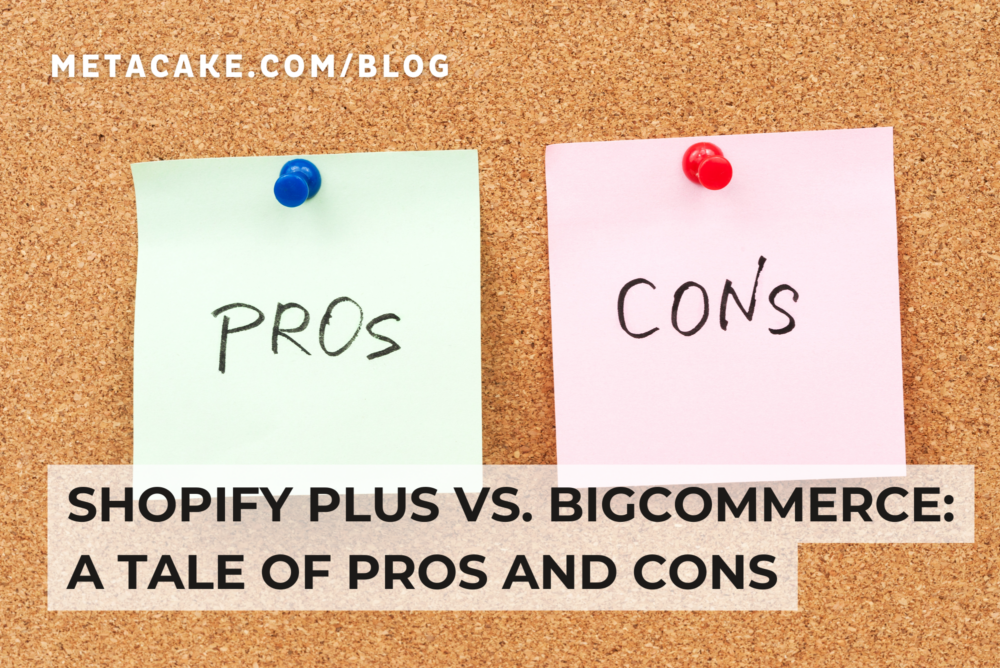
The Boring Stuff that Will Make Your Ecommerce Business a Real Success
Have you ever noticed that the things most people gravitate towards are rarely the path to true success? So many large and small businesses chase hacks, tactics, tools, gurus, and silver bullets looking for “the one thing” that will make everything explode. I’m here to tell you that this is a useless pursuit. That’s not to say you shouldn’t go after low-hanging fruit, but success does not come in the form of shiny objects… at least not consistently. Understanding the difference between growth hacking and growth strategy is key to success in any business, especially ecommerce.
If you’re doubtful, think about it this way. If success were easy, everyone who subscribed to the newest tool or latest tactic would be successful. Success requires the road less traveled, or at least the road less glamorous. This is because the things that actually make you successful as a business are the boring things. The fundamentals: consistency, discipline, focus, good leadership, paying attention to the details, and so much more are what drive true, long-term, stable, success.
That doesn’t mean it’s not fun though. We talk to a lot of brands every week from the biggest to the smallest and none of them would choose volatile excitement over long term, stable success.
In fact, I recently talked with the owner of a company that grew his business extremely quickly, flying up to making 8 figures in revenue. The dream, right? What he didn’t realize was that they were actually losing money the entire time. Amidst the chaos of running a young business that was taking off quickly, they didn’t even realize there were holes that desperately needed to be patched. They ended the year at a loss. This is not the strategy for long term growth.
In this article we’re going to debunk the myth that pursuing viral growth will lead to success (the irony is that viral growth cannot be pursued), and show you the proven boring things that you must focus on to create true, long-term success in your business. These fundamentals are time-tested principles that are employed by the best brands in the world and transcend trends, fads, and economies. These also happen to be the things that we employ with every brand we work with and how we create fast lasting growth like this.
The Hard Truth About Viral Growth
We see it all the time. The rockstar celebrity or professional athlete who makes a fortune and is the envy of everyone watching. But then they end up bankrupt. And just like the story I mentioned, it happens with companies too – all the time. Casper Mattress and Brandless are two brands at the top of that list right now. We see ecommerce companies that experience crazy, viral growth and achieve massive “status”, but at the end of the year, there is zero profit. If everyone liked their product so much, why weren’t they successful? Because they’re not focusing on sustainable, healthy growth strategies.
The truth is, the influence, status, and viral business growth that society idolizes aren’t what will make you successful. These things are great in their place and can create results, but what will make you truly successful long term? It’s all the boring stuff that will help your business become a calculated machine that creates profit instead of leaking it.
The Key to Sustainable Growth
You might have guessed that the answer to HEALTHY, SUSTAINABLE growth is the boring stuff. By boring stuff, we mean established systems and processes for every area of business, with the right people in place to help manage them.
We categorize the phases of business into three stages of growth: the Survival Stage, the Health Stage, and the Influence Stage. Chaos comes with the territory of the Survival Stage ($0-10 MM per year) as you are trying to figure your business out. You can’t have chaos if you want to scale into the Health Stage ($10-50MM per year), and if for some reason you do take it with you, it will sink your ship.
So if you want to break into the Health Stage of growth and move on up to the Influence Stage ($50-100MM+), you’re going to need systems and processes in place. They will make success so much more attainable and sustainable because it is the foundation for HEALTHY scale.
6 “Boring” Things That Will Bring Ecommerce Success
1. Mindset
Before anything else, you need to believe in this philosophy. You must come to grips with the fact that the boring stuff will get you where you want to go. Even if you don’t want to become a giant company, you always want to be a healthy, stable one. And systems and processes will be required to get there. Have you ever wondered how giant global corporations that are successful and profitable got to where they are? Yep, it’s the boring stuff.
Regardless of if you like sports, do you know how Tom Brady, Michael Jordan, and Tiger Woods were able to consistently win? It wasn’t the newest workout or magic supplement. It was all the boring stuff.
You may enjoy excitement, agility, or even chaos. We see a lot of ecommerce business owners with this type of personality and this energy can be great, but it needs to be directed for it to be long-term. You’ll need to surrender a love for chaos if you want a healthy, stable business. If you cling to it, you will be the person who stops your organization from evolving.
2. Processes
These are written SOPs for every area of business. If you want to make it more exciting, you can think of it as your trade secrets— your secret formula for success. Because that’s what these are. You should have an SOP for literally every area of your business. Here are several areas to get you thinking:
- Project management
- Holding meetings
- Marketing (you may need different SOPs for different channels)
- How you write and implement ads
- Running promotions
- Development
- Merchandising on your site
- Adding new products to your site
- How you write product descriptions
- Accounting procedures
- Wholesale relationships
- Shipping and fulfillment
- Human resources procedures
- Customer service procedures
For every SOP, we recommend including the following:
- The required end result
- The actions required to achieve that result (these are your actual steps)
- The approval process needed before the process is complete
These should be written with as little ambiguity as possible. The more systemized and clear you can make your SOPs, the greater your ability to scale your organization, and the more empowered your team will feel. Without them, you will have no framework or “script” for your business and you won’t be able to provide consistent service to your customers or scale the organization.
A good way to think about this is to imagine trying to film a movie without writing a script first. No one would invest in that. It would take 10x as long to film, 10x more money to produce, and it will most likely be terrible. Are you willing to invest your life into a business that operates in the same way— without a script to follow? I hope not!
3. Systems
Once you develop your SOPs, it will be clear that you need certain systems and tools to help your team execute the procedures. Be sure to document how you will use these tools in your SOPs.
When we talk about systems, we’re referring to:
- Project management tools (We use Basecamp and it’s a game changer.)
- Accounting software
- Spreadsheet templates (like our marketing calendar you can actually download for free)
- Checklists for safeguards and quality control
- Fulfillment software
- Marketing tools like popup generators should even fall on this list
- And more, depending on your business
Without tools and systems, you rely solely on people, and unfortunately, people make mistakes quite often and aren’t consistent. Systems will help your team stay consistent, follow a set path, and avoid many preventable errors.
4. Organization
As you establish your SOPs and systems, you will notice a need for certain roles to be filled. Now, even large organizations need to audit this, because having the right people in the right position is key. For example, you’ll likely need one or more project managers, accountants, copywriters, fulfillment specialists, customer service leads, etc. The responsibilities, locations, and requirements for the roles can also change over time.
Decide what roles should be in-house vs outsourced. Consider what business you are really in, and then outsource specialists that are not part of your core business. For many brands, things like marketing, technology, and coaching are outsourced. Some roles can be outsourced (for example, to our growth team at Metacake) and others will stay in-house.
It’s important to note that you can’t just hire anyone for these jobs; you need to hire people with the right skill sets for each of these jobs to be successful. Without the right people in the right seat, you’re potentially flying a plane with a flight attendant as your co-pilot. That’s not helpful for anyone.
5. Discipline
A system is only as good as the people who follow it. Once processes and systems are in place, you will need to teach and lead your organization to follow it to a T. I will warn you, this can be very difficult, especially if you’re implementing your SOPs late in the game. People will stick to what is comfortable and following new systems is uncomfortable. You will probably need to be patient and provide plenty of reminders, help, and accountability. However, if you don’t take the time to teach these disciplines, all of your work for steps 1-4 are useless.
6. Feedback
Finally, get feedback from your team on the systems and processes you’ve put into place. Ultimately, all of these steps need to make everyone more efficient, not less. If your team feels like they’re not as efficient because of a system or process, it needs to be adjusted. Unless you continue to refine your SOPs to improve over time, you are ignoring the biggest opportunity at your doorstep— and that is optimizing your organization to become a well-oiled, high-functioning, efficient machine.
Start Now
Depending on where your business is, you may be overwhelmed, but just start somewhere. The sooner you start the sooner you’ll stabilize. If nothing else, stop chasing the glamorous and start focusing on the things that will help you win.


